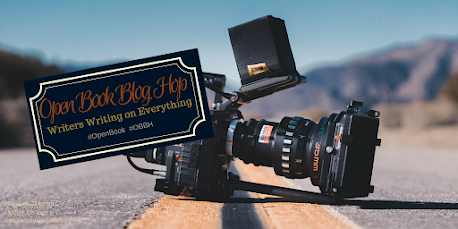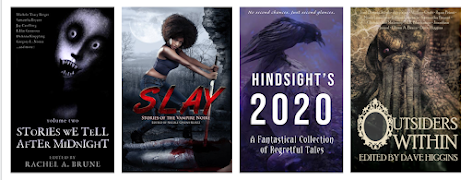Welcome to Open Book Blog Hop. You can find us every Monday talking about the writing life. I hope you'll check out all the posts: you'll find the links at the bottom of this post.
Do you have advice for changing perspective? For example, switching from writing exclusivly in third person and switching to first person? Or do you have a reason for staying with the perspective you do
____________________
A story changes depending on who is telling it. So choosing a point of view is a crucial decision to an author. Some stories are better served by one choice or another.
Mostly, I write in close third person. I like having a lens I'm viewing the story through--over the shoulder of a character. Though I've tried it out, omniscient doesn't seem to work for me so far. I need to understand where I'm standing to tell the tale, and that's best done (for me anyway) tied to a character and their biases, knowledge limitations, and perspective.
In my Menopausal Superhero series, I rotate through different characters in different chapters, so I get the immediacy and connection of being with a particular character, but the variety of what different characters might know or feel. I like the way they contradict one another and keep secrets from the other characters. Like real people.
Sometimes, though, I write in first person. It's challenging in a longer work, as you can only show what that one particular character knows, but it can be a great draw for readers, making a strong connection because you see the world through the eyes of that character. I find it effective in short form horror, where it puts the reader in the shoes of the person in danger, and ratchets up the tension.




I like how you said - When I'm beginning a new piece, it sometimes comes with a voice in place, and I know from the outset what kind of point of view I'll be using. I never thought about that, but it is exactly right. I don't choose the POV - it is chosen by the story I am writing. Tweeted.
ReplyDeleteI've never attemted second person. It sounds like a challenge!
ReplyDeleteThis is the only piece I've written in second person. I think it would be difficult to maintain for anything long.
DeleteI leave it to the characters, they can decide how to tell it. In the end, it's their story.
ReplyDeleteIt does seem that way!
DeleteI've also written from several different characters' viewpoints, but I make sure it's one character to one chapter. I don't head-hop.
ReplyDeleteThe same for me. Head hopping is confusing for the reader.
DeleteI don't really like the omniscient narrator. It often intrudes into the story far too much.
ReplyDeleteI don't see it very often in works for adults.
Delete